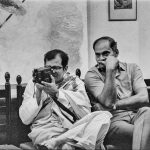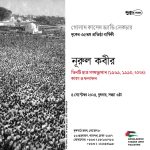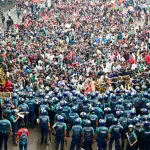

-
Do Muslim Women Really Need Saving?
Abu-Lughod, Lila. Do Muslim Women Really Need Saving? Anthropological Reflections…
-
The Long, Winding History Of Prison Camps Infographic
By Aubree Ritter Courtesy of: Infographic World
-
-
Bengali Harlem and the Lost Histories of South Asian America
by?Vivek Bald Harvard University Press In the final years of…
-
The ambulance is more Muslim than you
Subscribe to ShahidulNews The ambulance is more Muslim than you…
-
-
-
Lalon and Terror. Re-configuring the Nation's Political Map during Emergency
by rahnuma ahmed Drifting in cage and out again Hark…
-
-
We Would Have Had So Much Fun Shooting Them Down
Paris, Charles De Gaulle airport, 13th October 2001. The documents…
Latest Posts
Categories
- 1971
- Afghanistan
- Arts
- Bangladesh
- Capitalism
- Caretaker government
- Censorship
- China
- Chittagong Hill Tracts
- Chobi Mela
- Chobi Mela VII
- Coal
- Colonialism
- Consortium government
- Corruption
- COVID 19
- Crossfire
- culture
- Current News Photos
- Democracy
- development
- Disappearances
- disasters
- Drik and its initiatives
- Drik DNA
- Drik's Network Partners
- Drugs
- economy
- Education
- Elections
- Energy
- environment
- exploitation
- features
- Film
- Garments
- Gas
- Gender
- Genocide
- Global Issues
- Governance
- guimet
- Health
- History
- Human rights
- Humour
- Immigration
- Imperialism
- India
- Interesting sites
- Interviews
- Interviews and Features
- Islam
- Kalpana Chakma
- Killings
- Law
- lectures
- literature
- Major Features on Bangladesh
- Majority World
- media
- Media issues
- Migration
- Military
- mining
- Mir Jafar
- Monarchy
- Music
- My Photo Essays
- Nepal
- New Age
- New Media
- News Archives
- News Photo Archives
- Nuclear
- Occupation
- Oil
- Pakistan
- Partition
- Pathshala
- People
- Personal
- Photography
- Photojournalism
- Photojournalism issues
- photojournalist
- politics
- Poverty
- RAB
- Rahnuma Ahmed
- Religion
- Resistance
- Reviews
- Science
- security
- Shahidul Alam
- Sheikh Hasina
- short stories
- Sites of Drik and Pathshala photographers
- South Asia
- Southern Exposure
- Sports
- Sri Lanka
- surveillance
- Taliban
- Technology
- Terrorism
- Transport
- UK
- Uncategorized
- USA
- Violence
- War
- war on terror
- Water
- World
Tags
1971 Art Arts Bangladesh book censorship Chobi Mela Chobi Mela VII culture Death democracy Dhaka Drik education Elections exhibition Festival garments Gaza Genocide Governance history Human rights India Israel Journalism Law literature Majority World media Military Pakistan Palestine Pathshala Photography Photojournalism politics Rahnuma Ahmed resistance Shahidul Alam USA Violence Visual Arts War War Crimes



